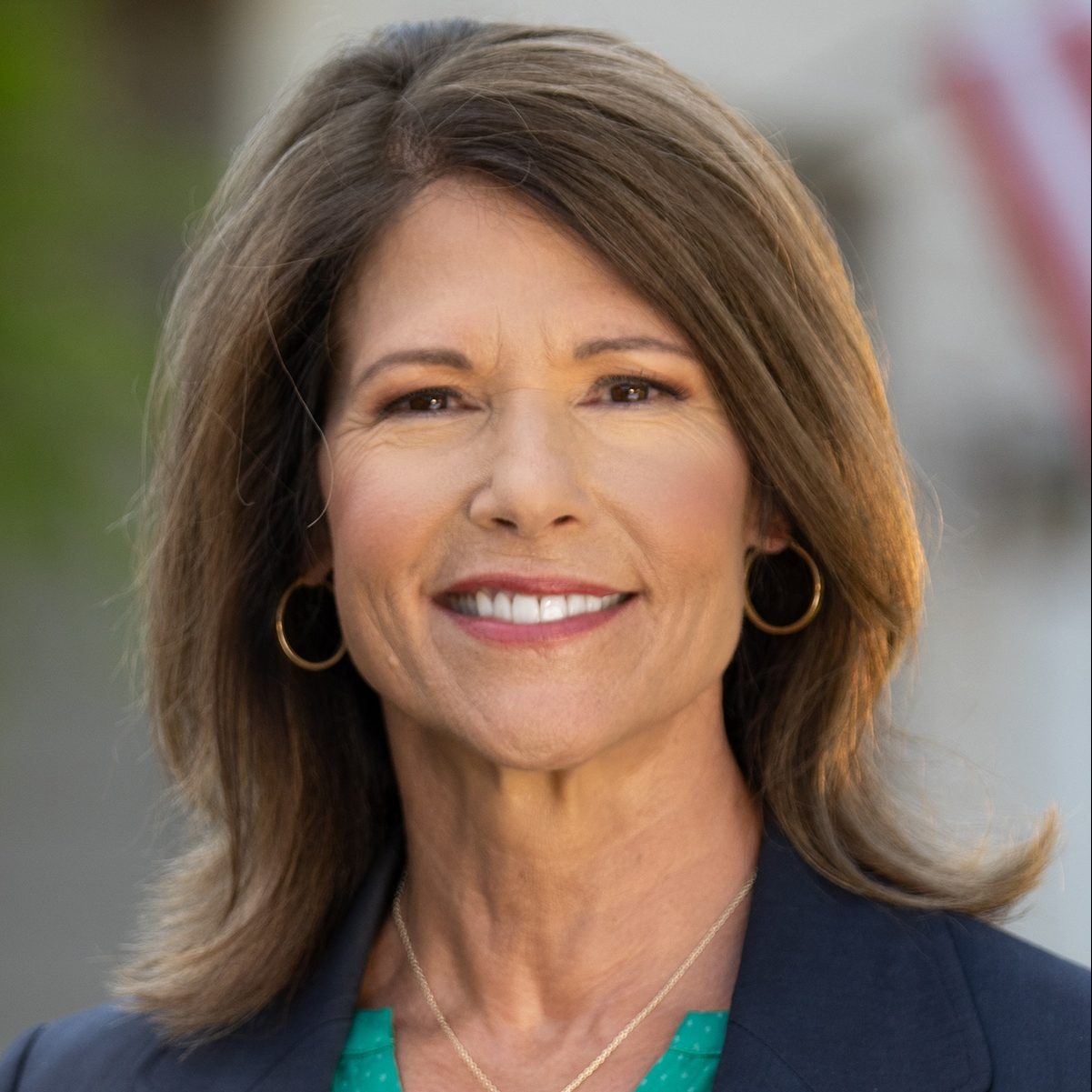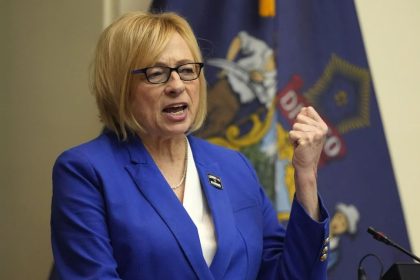Bustos Compiles Advice for Defending House Majority in 2022

Rep. Cheri Bustos, the Illinois Democrat who led her party’s House campaign arm in the 2020 cycle, has some advice for swing-district Democrats on how they can win in communities that tilted for former President Donald Trump the last two elections.
Spread over 67 pages, “How Dems Win In Trump Districts,” features the stories of 25 lawmakers who did just that, but perhaps more importantly, takes a sober look at instances where the party lost ground.
“To understand how the modern Democratic party can win in competitive suburban and rural districts, we need to look at the areas of the country where we have lost ground and why,” Bustos and co-author Robin Johnson, a political consultant and political science professor at Monmouth College, write.
“This is about a few small blue islands in the big red sea of the heartland. These lessons here are important — critical even — to keep the democratic party in the majority,” they add.
Though they concede the nationalization of elections, hyper-partisanship, disinformation campaigns, the rapid rise of social media as a news source and inequities in how districts are drawn have all made elections more challenging, they also refuse to allow these to be excuses.
Instead, they suggest, these factors should be reasons to be all the more determined, reminding the reader that “to deliver real results and create meaningful opportunities for people, we need to first win elections.”
This determination will be all the more important entering the 2022 midterm cycle, as historical trends have favored the party that doesn’t hold the White House.
In the 21 midterm elections held since 1934, only twice has the president’s party gained seats in both the Senate and the House — Franklin Delano Roosevelt’s first midterm election and George W. Bush’s first midterm election.
On four other occasions, the president’s party gained Senate seats and once it was a draw. On one occasion, the president’s party gained House seats. At the same time, the worst midterm losses tend to occur in a president’s first term.
To buck this trend, Democrats should draw hope and strategic sustenance from the hard-won lessons of political survivors of the past two election cycles, Bustos and Johnson write.
The first of these lessons? Get off your ass and work hard. Democrats who prevailed in Trump-leaning districts knocked on doors, attended events and were visible, constantly visible throughout the district.
The next piece of advice the authors share is “develop your own brand.”
While the nationalization of elections makes it more difficult to keep the focus of a race on local issues, democrats who prevailed in 2020 and 2018 differentiated themselves from the messaging the Democrats were using nationally and from personalities in the party that were out of step with their districts.
The candidates that did this best, Bustos and Johnson write, maintained a focus on bread and butter issues.
“Democrats in competitive districts prioritize economic issues, such as creating good paying jobs, putting more money in people’s pockets, affordable health care, quality schools and infrastructure,” they say.
For incumbents, a key piece of advice is to do your job. “Listening is important, but not enough,” Bustos and Johnson write. “Incumbents and their staff … need to act on what they hear from the constituents they meet while campaigning and produce positive results.”
Along with that, they urge candidates and the staff to be creative. “The pandemic revealed how critically important it is to reach voters where they are — even when the circumstances shift dramatically,” they write, adding for emphasis, “We must be open to creative approaches in order to reach voters we have lost ground with.”
The last two pieces of advice Bustos and Johnson impart might seem, on first blush, to conflict.
On the one hand, they tell candidates to be aggressive, not passive, in messaging. Democrats who prevailed against a Trump tide “didn’t wait to be attacked by their opponents, but instead went on the offense”, something they wish the national party had done more of during the last election cycle.
But despite the rough and tumble of the campaign, Bustos and Johnson say a common theme among Democrats who have been successful in Trump district is that they’ve worked across the aisle to get things done for their constituents — and actually express a willingness to work with Republicans to accomplish common goals.
How the authors are distributing their missive and the impetus for writing it in the first place, several months after Bustos stepped down from the DCCC and later announced she would not seek a sixth term in Congress, is something of a mystery.
Representatives of Bustos’s congressional office did not immediately respond to an emailed request for comment.
Bustos will continue to represent Illinois’ 17th Congressional District, located in the northwest corner of the state, until January 2023. Long considered to be competitive, Bustos herself won reelection in the district in a nail-biter in 2020 with 52% of the vote, compared to 48% for her Republican challenger Esther Joy King.
Reflecting on her own experience, Bustos said as a former journalist, “I know the value of listening to people’s stories … so I’ve based my campaigns on listening to voters.”
“This approach has formed the foundations of my outreach strategy,” she continued. “The best way to listen to people isn’t through polls, social media or focus groups … but directly, and by meeting them in the course of their daily lives.”
Because reaching every voter through door-to-door campaigning in her district is impractical, Bustos said she created her own best practices.
One is to shadow people in a variety of occupations in her district. “I take every opportunity to meet people where they are … I visited nearly every library in the district … and many VFW and American Legion Halls,” she said.
“I also maintain strong relations with media specific to communities of color and regularly sit down with those outlets,” Bustos said.
Rep. Elissa Slotkin, of Michigan, said in her experience, there’s a premium on local knowledge in her district.
“I sometimes feel like I’m running for mayor in hundreds of small towns and cities all at once,” she said.
Like the authors, she said it’s critical for candidates to focus on issues that impact people, “Not the noise coming out of the District of Columbia.
“And we have to pass bills that have a tangible economic impact, so that we have something to show for ourselves to the voters,” she said.
Rep. Cindy Axne became the first Democrat to win her seat in southwestern Iowa in 2018, beating out David Young, and then she won a rematch last year.
“Even when every ounce of you wants to stray from the messaging, especially when you’re in a safe Democratic room, don’t,” Axne said. “Everything is on the record and can be used against you by the other side.”






















